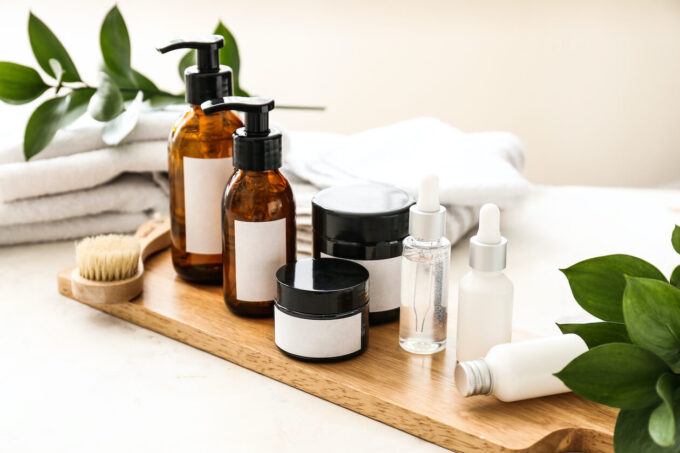The skincare industry is experiencing a remarkable surge, with expectations to reach a staggering $204.61 billion by 2030. This growth is predominantly fueled by the rise of independent and clean beauty brands, positioning the market as an inviting terrain for new entrepreneurs. If you’ve ever dreamed of diving into skincare entrepreneurship, this is your moment. However, starting your skincare brand isn’t just about passion; it requires meticulous groundwork.
Understanding the complexities of product formulation, compliance with safety laws, and effectively navigating the competitive landscape is crucial. By diving deep into market research, identifying consumer trends, and pinpointing your unique selling proposition, you can carve a niche for yourself in this vibrant industry. In this skincare entrepreneurship guide, you will discover essential tips that can steer you toward launching a successful skincare brand.
Key Takeaways
- The skincare market is projected to reach $204.61 billion by 2030.
- Independent and clean beauty brands are at the forefront of this growth.
- Thorough research is essential to understand market dynamics.
- Safety laws and compliance are non-negotiable in skincare development.
- Identifying your niche is crucial for standing out.
Understanding the Skincare Market Landscape

Entering the skincare industry requires a deep understanding of the current market landscape. Being aware of skincare market trends is crucial for entrepreneurs aiming to carve out a niche. As new products continually flood the market, identifying what resonates with consumers is essential for effective skincare brand development.
Current Trends in Skincare
Today’s consumers are more informed and discerning than ever, often prioritizing products that align with their values. The rise of clean, cruelty-free, and vegan formulations stands out, with many shoppers now favoring brands that emphasize sustainability. Research indicates that approximately 68% of consumers affirm the importance of “clean” labels when choosing skincare products. You must monitor evolving skincare market trends to stay competitive while launching skincare products that cater to these preferences.
Identifying Your Niche
The skincare industry is replete with opportunities, yet it’s vital to find a unique selling proposition. Personalization is a growing demand, with many consumers seeking specialized solutions tailored to specific skin types or conditions. By focusing on a particular niche, you can differentiate your brand from the competition. Utilize tools like Google Trends and conduct competitor analysis to discover gaps in the market that may inform your skincare brand success strategies. This research can guide your product offerings, ensuring they meet the needs of your target audience.
| Trend | Description | Implication for Entrepreneurs |
| Clean Beauty | Products with no harmful ingredients, focusing on safety and transparency. | Prioritize clean formulations in product development. |
| Sustainability | Eco-friendly packaging and practices. | Implement sustainable practices to attract eco-conscious consumers. |
| Personalization | Tailoring products to specific skin concerns or types. | Consider customizable options for clients’ unique needs. |
Starting Your Own Skincare Brand ─ Essential Tips for Entrepreneurs

Launching a skincare brand requires careful planning and strategic decisions. Taking the right steps can significantly enhance your chances of success in this competitive industry. This section covers critical actions you should take to establish a solid foundation for your skincare business.
Do Your Research Thoroughly
In the early stages, conducting thorough market research is vital. You should analyze competitive brands, identify market gaps, and validate your product ideas. This skincare entrepreneurship guide emphasizes understanding consumer needs and preferences, which can inform your product offerings. Tracking trends within the skincare industry will provide insights that can influence your business growth tactics.
Invest in Branding and Product Development
A strong brand identity is essential for standing out. Invest in developing a unique brand that resonates with your target audience. This includes creating a compelling brand story, visual elements, and packaging that aligns with your brand values. Effective skincare brand marketing starts with establishing a memorable brand that consumers trust. Product development should focus on quality, safety, and efficacy, ensuring that your products meet regulatory standards while appealing to your customer base.
Partner with Reliable Suppliers

Your choice of suppliers can make or break your skincare brand. Collaborate with reputable manufacturers who prioritize quality and compliance. Building strong relationships with reliable suppliers enhances your production capabilities and ensures consistent product quality. You may also want to explore outsourcing product fulfillment to streamline operations. Implementing effective skincare brand success strategies requires rigorous testing and quality control to meet customer expectations and regulatory requirements.
Explore now and learn more about compliance and safety in skincare formulation. Ensuring your products meet necessary standards is essential for gaining consumer trust and maintaining quality.
Conclusion
As you embark on your journey to launch a skincare brand, remember that a deep understanding of the skincare market landscape is crucial. By staying informed about current trends and identifying your niche, you position yourself to tap into consumer desires effectively.
FAQ

What are the key factors to consider when starting my own skincare brand?
You should focus on conducting thorough market research, understanding consumer trends, identifying your unique selling points, and navigating industry regulations regarding product formulation and labeling.
How can I identify my target audience in the skincare market?
Analyze consumer behavior trends, conduct surveys, and utilize tools like Google Trends to understand your potential customers’ preferences and needs. Finding gaps in the market, such as specialized products for specific skin types, can also help target your audience effectively.
What steps can I take to build a strong brand identity?
Invest time in developing a brand story and visual identity that resonates with your target market. This includes logo design, packaging, and a clear message that conveys the values of your skincare brand.
How important is it to have product testing for my skincare line?
Extensive product testing is crucial to ensure safety and efficacy, meet regulatory standards, and build trust with your customers. Proper testing can help prevent adverse reactions and enhance overall product quality.
What are the benefits of outsourcing product fulfillment?
Outsourcing can streamline your operations, reduce overhead costs, and allow you to focus on core activities like marketing and product development. It also enables you to leverage the expertise of fulfillment partners to ensure timely delivery and inventory management.









